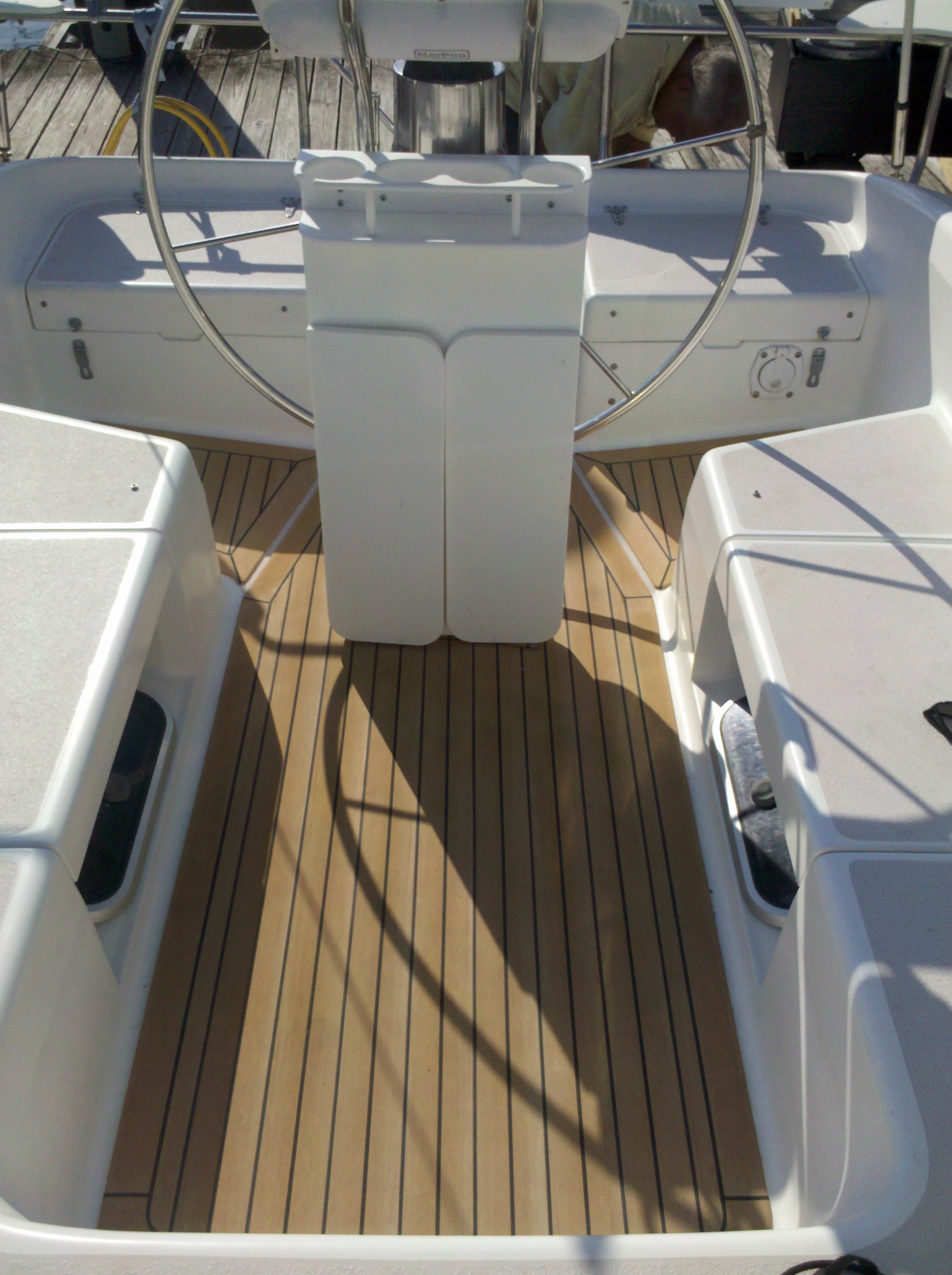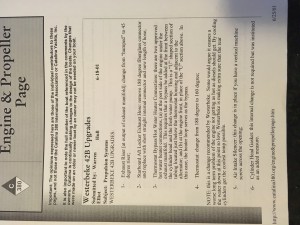I have 2 ac units on this Catalina 2008 16000 BTU under V Berth and 7000 BTU in aft closet. The AC Coil in the V Berth that has been protected with a filter(always clean) has become totally degraded; when I take a vacuum and a brush to clean, it isn’t dirt that is coming off the fins, it is metal debris from same; I can’t even imagine how the ac is even able to cool. Anyway, being that the unit is 9 years old, I don’t trust it and want to replace. The problem unit is the 16000 BTU in the forward V Berth The unit that is in there is a Marvair SeaMach; I can’t begin to figure out how the hell they got it in there or how to get it out and how I can install a new like and kind. Any suggestions from my fellow Catalina owners. Thanks Charlie Knupp sailboat DAFFY Fort Lauderdale FL
Category Archives: Uncategorized
Rudder Post Screws
There are three screw holes in the lower rudder post bearing. According to Warren Pandy at Catalina, these were originally to secure the lower bearing to the hull but for a number of years now they have not been used and are unnecessary. The lower bearing needs to be secured to the boat using 3M 4200.
You need to be logged in to see the rest of this content. Catalina380-IA members, please login.
To join please fill out a membership application (Association->Membership Application) and send a check to the address on the form.
PlasDeck
From Paul, Hull C380, #170
You need to be logged in to see the rest of this content. Catalina380-IA members, please login.
To join please fill out a membership application (Association->Membership Application) and send a check to the address on the form.
Furling Main Issues
A number of members have talked about problems with their furling main becoming difficult to pull out from the mast in spite of following recommendations of keeping tension on the outhaul when pulling it in and keeping the boom relatively at 90 degrees vis a vis the mast.
My experience with the same issue after 8 years of sailing my 387 was that the sail itself had stretched out such that it didn’t roll up tightly and consistently over the length of the sail. This caused a bunching in the slot of the mast. For a while, I had to literally pull it out by hand. North Sails finally diagnosed the problem for me. A new sail solved the problem. Recutting the old one was not cost effective.
I have also experienced the furling mechanism getting stuck when the main halyard is not tight and thus lets the hook on
You need to be logged in to see the rest of this content. Catalina380-IA members, please login.
To join please fill out a membership application (Association->Membership Application) and send a check to the address on the form.
Transmission Clutch Cable
I have a 2002 Catalina 380. There is too much play in the transmission clutch cable, and I have decided to replace it. Does anyone know the length/specifications of the cable for the Catalina 380?
Catalina 380 installed 3 phase charger. Installed 1999. No longer works.
The 3 phase charger installed in the starboard stern hatch no longer works.
Has anyone had to replace this electronic part ?
raykovacs7@gmail.com
Exhaust Vent Loop Squeaks
New 385, the exhaust vent loop on the forward bulkhead of the cockpit locker squeaks rather loudly at low rpms (it goes away at high rpms). Have other 385 owners experienced this noise? Is it normal or if not, were there any maintenance that made the noise go away?
Catalina 380 Westerbeke overheat
New to association and getting familiar with boat. Ran across attachment in documents provided by previous owner relating to an overheat problem with the 42B4. Called Westerbeke and Catalina support trying to find out if it applied to my boat, hull 191. Catalina support related that it was discovered in earlier models and fixes were made; Westerbeke said same. I asked if thermostat should still be at 160 degrees if fixes were made. I was advised to keep it at 160 degrees. I had the engine services by my mechanic and he replaced it with a 180 thermostat, as specked by Westerbeke. He argues to keep it at 180; I’m on the fence. Any experienced advice appreciated.
Stage Door Canteen
Bill Poor
Westerbeke Overheat 380
New to association and getting familiar with boat. Ran across attachment in documents provided by previous owner relating to an overheat problem with the 42B4. Called Westerbeke and Catalina support trying to find out if it applied to my boat, hull 191. Catalina support related that it was discovered in earlier models and fixes were made; Westerbeke said same. I asked if thermostat should still be at 160 degrees if fixes were made. I was advised to keep it at 160 degrees. I had the engine services by my mechanic and he replaced it with a 180 thermostat, as specked by Westerbeke. He argues to keep it at 180; I’m on the fence. Any experienced advice appreciated.
Stage Door Canteen
Bill Poot
You need to be logged in to see the rest of this content. Catalina380-IA members, please login.
To join please fill out a membership application (Association->Membership Application) and send a check to the address on the form.
Winterizing the hot water tank
Like to know what other members do to bypass the hot water tank during winterizing the water systems. Thank you
Isi and LaMae
S/V Windseeker II
C387 H128
You need to be logged in to see the rest of this content. Catalina380-IA members, please login.
To join please fill out a membership application (Association->Membership Application) and send a check to the address on the form.


